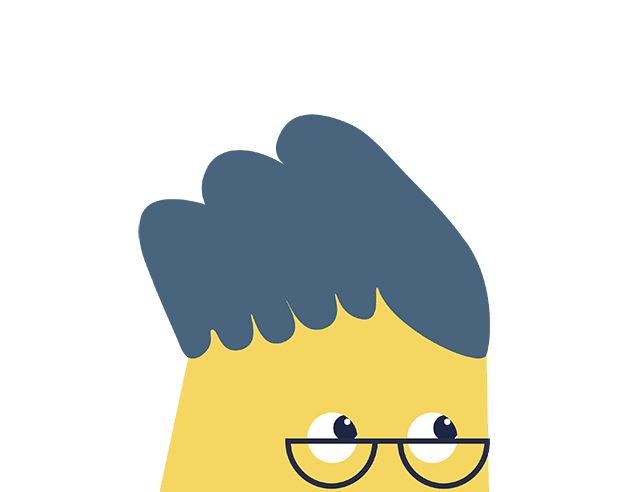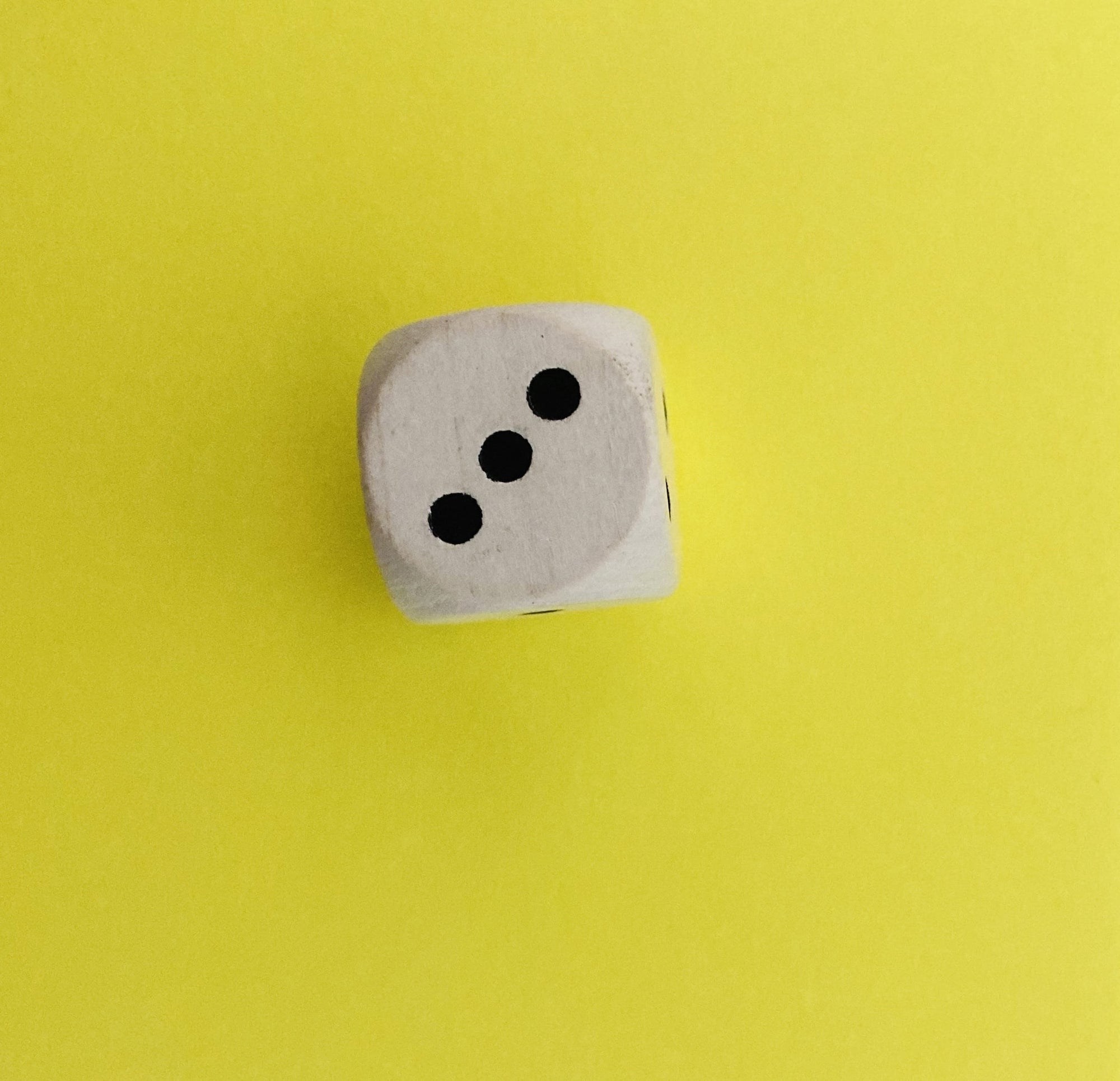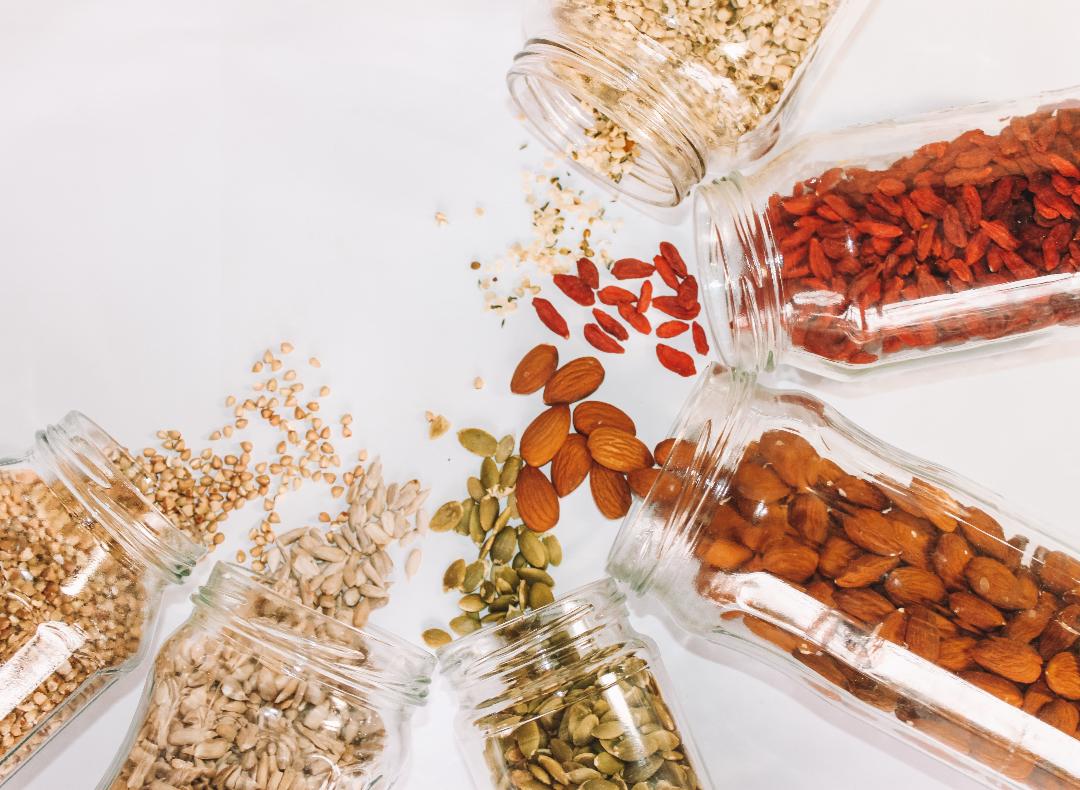Bloggin Noggin

Brain Health
How do you describe how you feel in one word?
The language of 2020
2020 has brought into our vocabulary phrases that we would never have imagined a mere year ago. ‘Social distancing’, ‘where did you get your mask?’ “ shall we just zoom? and of course ‘in these unprecedented times’.
Why feelings and emotions matter to our brain health
As Marc Brackett PhD tells us in his book Permission to Feel, “Labelling emotions accurately increases self awareness and helps us to communicate emotions and therefore aids social interactions and relationships”.
Whilst there may not be a single word or phrase to sum up all that this year has brought us, there are many countries that have their own way of describing ways of living or groups of feelings that we might be aspiring to as a new year looms.
Purpose
Ikigai was not just a hugely successful book but is the description of the Japanese way of being that prioritises having a sense of purpose with other aspects of healthy lives
Hygge describes the Danish concept of living cosily and mindfully, enjoying life’s simple pleasures
International Language of everything
The Positive Lexicography project, compiled by Dr Tim Lomas, looks at these international untranslatable concepts in more detail.
Our favourites include -
Sisu-Finnish- describes a psychological strength that helps people deal with challenges
Heimat- German- deep rooted fondness towards a place which one feels a sense of belonging
Dadirri- Australian aboriginal- a deep spiritual act of reflective and respectful listening
Currently we may be engaging in Koselig - essentially coziness and craving comfort - we can look ahead to the date next year when we can relax in Utepils ( Norwegian, a beer that is enjoyed outside on the first hot day of the year)
Perhaps we might be able to indulge in Gigil ( the irresistible urge to squeeze someone because they are loved or cherished, also known as an untranslatable word for pure joy)
Keep well,
Dr Clara Russell

Brain Health
Brain Health Cheat Sheet
With so much going on right now, let's get back to basics for looking after your noggin
4 Simple Ways To Look After Your Brain
Changes to your body and brain are normal as we age and what we do today will impact our health in the future.
There are some things we can do to help slow any decline in brain health and memory and lower the risk of developing Alzheimer’s disease or other dementias.
Exercise
Regular exercise has many benefits, and it appears that regular physical activity benefits the brain.
Multiple research studies show that people who are physically active are less likely to experience a decline in their mental function and have a lower risk of developing Alzheimer’s disease.
Aim for 30–60 minutes exercise each week, whether that’s waling, swimming, tennis or any other moderate aerobic activity which increases your heart rate.
Eat a Mediterranean Diet
Plant-based foods, whole grains, fish and healthy fats, such as olive oil are all part of a healthier diet and focuses on more fish than red meat.
Research from 2018 found that eating a Mediterranean diet slows some changes in the brain that may indicate early Alzheimer’s disease.
The results point to a lifestyle change that could help reduce the risk of this type of age-related dementia.
Get Plenty of Quality Sleep
Sleep plays a very important role in your brain health and there are some theories that sleep helps clear or rinse the brain of abnormal proteins in your brain and consolidates memories, which boosts your overall memory and brain health. Try to maintain a regular sleep pattern in terms of the amount of deep sleep you’re aiming for. Consecutive sleep gives your brain the time to consolidate and store your memories effectively.
Stay Socially and Mentally Active
Your brain is similar to a muscle — use it or you lose it. Whether it’s reading, knitting, Soduku, dancing, crocheting, playing music, painting, gardening - hobbies are important because they help us switch off and
also learn new skills - both good for brian health. Social interaction helps to ward off depression and stress.Look for opportunities to connect with loved ones, friends and others, especially if you live alone. There is research that links solitary confinement to brain atrophy, so remaining socially active may have the opposite effect and strengthen the health of your brain.

Immune System
Run, Walk, Dance or Skip-Why Movement matters for your Noggin
“I’m so sorry, I’ve forgotten your name…”
Have you ever had that experience of being introduced to someone and before you have even finished your next sentence you have totally forgotten their name ? Whilst zoom kindly helps us avoid that by having names displayed at the bottom of each person’s screen box, it won’t be too long (hopefully) before we are back out into some sort of real world and having to meet people face to face, or at least mask to mask
Is that normal?
Forgetfulitis happens to us all. The more plates we are spinning at one time can mean that we find it hard to pay attention to details and are increasingly likely to forget stuff. Combine that with stress and not sleeping properly is it any wonder we can’t remember where we put the keys.
Move your feet, shake your brain cells
Aerobic - heart racing blood pumping - exercise can help us with our memory. Exercising helps with the release of brain cell supporting chemicals that can help build new brain cells in the parts of the brain that are important for filing and storing our long term memories. It is never too early or late to start-a study from the Journal of Alzheimer's Disease looked at the impact of different types of exercise in a group of people considered at risk of Alzheimer's Disease. They found that memory score results improved by over 40% in those who participated in regular aerobic exercise versus regular stretching.
There is no I in team
Whilst all movement and exercise is important for brain health, playing in team sports appears to have added benefits for the efficiency of how our brains work as we age. A report looked at 80 studies that had explored different types of exercise and how they impact our cognitive abilities. All movement and exercise matters but it seemed that playing a team sport had the most marked benefit to how our brain ticks. Sebastian Ludyga PhD co wrote the report and states that playing even in partnership is particularly helpful as it means our brains have to process and react to ‘the somewhat unpredictable movements of our teammates or opponents’ .
Move more, feel better
When we exercise our brain releases feel-good chemicals endorphins as well as neurotransmitters which helps regulate our mood, sleep and appetite, including serotonin. Studies have shown that those who exercise regularly are less likely to report depressive symptoms. Regular exercise also helps with our sleep routines and this in itself is crucially important for our mood, energy levels and can help our memory.
The bottom line? Getting active regularly, in whatever form you enjoy, can actually change the structure and help improve the function of our brain at any age.
Keep Well
Dr Clara Russell

Mental Health
Seasonal Affective Disorder: What It Is And How To Manage It
The nights are drawing in and as winter approaches this can have an impact on our brain health and mental wellbeing.
Seasonal affective disorder (SAD) is a type of depression which comes and goes in a seasonal pattern and can be common.
Many people start to feel the effects as autumn progresses into the winter months as days get shorter.
According to the NHS, symptoms of SAD can include:
• a persistent low mood
• a loss of pleasure or interest in normal everyday activities
• irritability
• feelings of despair, guilt and worthlessness
• feeling lethargic (lacking in energy) and sleepy during the day
• sleeping for longer than normal and finding it hard to get up in the morning
• craving carbohydrates and gaining weight
We don’t fully know the exact cause of SAD and it's often linked to a lack of exposure to sunlight during the shorter autumn and winter days.
The main theory is that a lack of sunlight may stop a part of the brain called the hypothalamus working properly.
This in turn can affect three areas of brain function:
• production of melatonin – melatonin is a hormone that makes you feel sleepy; in people with SAD, the body may produce it in higher than normal levels
• production of serotonin – serotonin is a hormone that affects your mood, appetite and sleep; a lack of sunlight may lead to lower serotonin levels, which is linked to feelings of depression
• body's internal clock (circadian rhythm) – your body uses sunlight to time various important functions, such as when you wake up, so lower light levels during the winter may disrupt your body clock and lead to symptoms of SAD outlined above
Mental heath charity Mind states that SAD can affect you during any season or time of year. Some people experience it in summer, although less research has been conducted on this so you might find people are more aware of winter SAD.
The Royal College of Psychiatrists have published a paper on how to tackle seasonal affective disorder, I’ve shared some of their findings below.
You can read the entire article here.
SAD can be treated in the same way as depression. Treatment usually includes self-help and lifestyle changes, talking therapies and antidepressant medication.
Light box treatments are also popular and have some evidence.
Self-help
Some symptoms of SAD can create extra problems which make you feel even worse – 'vicious circles’:
If it is dark and you feel tired all the time, you will probably do less – and this can make SAD worse. Try to get as much natural sunlight as possible. Take a walk during daylight hours or carry on any exercise you would normally do. Remind yourself that days will get longer again in the spring.
If you are eating more, you may put on too much weight which makes you feel worse. Remind yourself that most people put on weight in autumn and early winter.
Sleepiness, lack of motivation and irritability can all cause problems at home, with your friends, and at work. The feelings of not getting things done can make you feel stressed.
Tell your family and friends so that they can understand what is happening and be supportive.
Light therapy
The idea is to try to provide extra light and to make up for the shortage of daylight in winter. A "light box" is used. Its light is like sunlight, but without the ultraviolet rays, so it is not harmful to the skin or the eyes. It may help tell the brain to make less of a hormone, melatonin.A light box is usually used for 30 minutes to an hour each day. It is most helpful if you use it at breakfast time. Light therapy works quite quickly. If it is going to help, most people will notice some improvement in the first week.
Fortunately, any side-effects are usually mild. They include headache, nausea or blurred vision. It is usually best not to use a light box after 5.00 pm because you may then find it hard to get to sleep.
Dawn-simulating alarm clocks are also used. These come on dimly about an hour before waking up time and gradually get brighter. They can be helpful if you find it hard to wake up on winter mornings.
Medication
Antidepressants may be helpful in SAD and it's important to discuss any concerns you have with your doctor.
Cognitive behavioural therapy (CBT)
There is some evidence that CBT can help winter depression and may prevent it coming back in future winters. CBT is a treatment for anxiety and depression in general.
You have weekly sessions with a therapist and do some homework, like keeping a diary. Have a look at our leaflet on CBT.
What is the best treatment?
For mild symptoms, the self-help measures described in this leaflet will usually be enough.
If your symptoms are worse, the first choice is usually between a light box and antidepressants.
The choice will often depend on what is available, what is convenient and what you prefer.
When to see your GP
You should consider contacting your GP if you think you might have SAD and you're struggling to cope. Your GP will be able to carry out an assessment to check your mental health.
They may ask you about your mood, lifestyle, eating habits and sleeping patterns, plus any seasonal changes in your thoughts and behaviour.
Keep well, Dr Clara Russell

Immune System
2,4,6,8 Which Omega do we appreciate?
Omega 3
Omega 3 Fatty Acids have a vital role to play in keeping your brain healthy. They are essential for nerve cells and brain cells to communicate and translate information into action elsewhere in our body.
EPA and DHA - 2 types of essential fatty acids-are the powerhouse behind the benefits of omega 3. DHA in particular is a key player in the formation and connection of brain cells
EPA has the job of being involved in production of healthy inflammatory responses as well as being a key part of nerve cell creation.
As we get older, our bodies become less good at using EPA and DHA so it is particularly important to keep an eye on our intake of omega 3 at all ages.
We don't make our own omega 3, we have to consume it - fish, walnuts, chia seeds and garlic are all good natural sources. It can be hard to eat enough though, especially as we get older and our body is less efficient at using omega 3 so good quality omega 3 supplements can help with our intake.
Omega 6
In contrast, there is rarely a shortage of omega 6 found in our food as they are a key ingredient in our modern food cupboards. Cereal, fast food, meat, processed foods and dairy products are sources of omega 6. Whilst there is little evidence that too much omega 6 can be harmful, the key is the balance of this in relation to the brain healthy omega 3. High levels of omega 6 have been shown to have a role in less healthy inflammation which is not good news for overall health.
Omega 9
Omega 9 is produced by our own bodies and can also be found in olive oil, nuts and seeds.
As we make our own omega 9 and we consume omega 6 in high quantities by the nature of modern diet, omega 3 is often the omega that we need more of.
Omega 3 and Brain Health
From ADHD in children, to depression in adults and progression of dementia, omega 3 is continuing to be evaluated for how its role in brain health may be explained further.
A recent study suggested that supplementing with an omega 3 supplement rich in DHA produces similar improvements in brain function to exercise in older women. Specifically, verbal memory ( such as recalling information on a list) and executive function ( how we manage and process and act on information ) seemed to be improved by those taking the supplement versus those who were not.
What’s the verdict?
As with many things in nutrition, little is clear cut but Omega 3 is the Omega we need to focus on with regard to looking after our brain health and keeping up with our other omegas.
Keep well, Dr Clara Russell

Immune System
Vitamin C is for everyday health, not just for Christmas
Vitamin C-where do you get yours?
I was a big fan of Sunny Delight in my youth, the orange juice that used to actually turn you yellow if you drank too much of it. I also enjoyed the odd orange and presumed that was enough to keep my vitamin C levels up. If I felt a tickle of a sore throat or that I was fighting something off, I’d eat an extra satsuma when I remembered and might add in a chalky tasting supermarket vitamin C supplement.
Vitamin C - more than just the cold and flu vitamin
I put my hands up- I underplayed the importance of vitamin C. This clever vitamin is needed all year round-not just when we think we need a bit of oomph.
Vitamin C is the most studied and best understood anti oxidant-it defends our cells against nasty free radicals to keep them ticking over and working at their best
Whilst vitamin C is found in orange juice, even in sunny d, it turns out the sugar in those juices makes it pretty hard to absorb the amount of vitamin C that is actually in the product. And even if you could absorb all the vitamin c in a glass of OJ, unless you have a diet that contains a lots of citrus fruits every day, you are still at risk of not obtaining enough vitamin C
Oranges are not the only fruit
Hear vitamin C think orange. Guavas, kiwi fruits, bell peppers and strawberries are even more C rich than the humble orange. Pile up the greens on your plate this festive season - tis the season to brussel sprout, another vitamin c rich food source.
Fun fact-Your brain is full of vitamin C
Vitamin C is more highly concentrated in your brain than in any other organ. For good reason. Vitamin C in your brain is used to make nerve cells (neurons) as well as myelin, an important insulator of nerve cells which helps nervous system cells communicate.
Beauty is vitamin C deep
Vitamin C helps us make collagen which is like a type of scaffolding to hold our cells up. All our cells need this so collagen has responsibility for keeping our skin look fresh and bright as well as supporting blood vessels
Immune super heroes
With its unparalleled free radical fighting abilities, vitamin C is the super hero sidekick our immune cells need. Insufficient vitamin C may make it that bit harder for our immune system to fight at its hardest. And we all know how important supporting our immune system is right now.
Stress weapon
Next to our brain, the adrenal glands (which sit on top of the kidneys) are the 2nd most vitamin C packed area in the body. Adrenal glands have a key role in producing life sustaining hormones as well as hormones involved in helping to deal with stress.
Keep Well, Dr Clara Russell

Brain Health
Walking Your Way To Good Brain Health
We know that walking is good for us, can help us lose weight and generally feel good and now scientist have found it has a positive impact on the brain.
Researchers at New Mexico Highlands University in 2017, found that the foot's impact during walking sends pressure waves through the arteries that significantly modify and can increase the supply of blood to the brain, which is positive for brain health.
Until recently, the blood supply to the brain (cerebral blood flow or CBF) was thought to be involuntarily regulated by the body and relatively unaffected by changes in the blood pressure caused by exercise or exertion. The NMHU research team and others previously found that the foot's impact during running caused significant impact-related retrograde (backward-flowing) waves through the arteries that sync with the heart rate and stride rate to dynamically regulate blood circulation to the brain.
From the study "New data now strongly suggest that brain blood flow is very dynamic and depends directly on cyclic aortic pressures that interact with retrograde pressure pulses from foot impacts," the researchers wrote. "There is a continuum of hemodynamic effects on human brain blood flow within pedaling, walking and running. Speculatively, these activities may optimize brain perfusion, function, and overall sense of wellbeing during exercise."
"What is surprising is that it took so long for us to finally measure these obvious hydraulic effects on cerebral blood flow," first author Ernest Greene explained. "There is an optimizing rhythm between brain blood flow and ambulating. Stride rates and their foot impacts are within the range of our normal heart rates (about 120/minute) when we are briskly moving along."
For fitness guides, more information on the benefits of walking and if you’re interested in taking part in Couch to 5k and are in the UK, please visit the NHS website here.
Keep well (and keep walking)
Dr Clara Russell

Stress
Dear Stress, let’s break up
After the events of 2020 so far, is anyone NOT stressed? Here’s the good news, whilst stress is all around us, our everyday habits can help us tackle stress head on.
Move More - if you are an exercise avoider (like me,) you will always be able to find something more enjoyable to do than get active. The benefits of moving more, sitting less and getting active for our physical and mental health are undeniable and well documented. A mere 20 minutes of activity has been shown to improve our mood for up to 12 hours so making time as part of our morning routine can help you deal with stressful triggers the day may present.
Mindfulness and Meditation - Psychological research has shown when our minds wander we are more likely to be unhappy and research from Harvard shows our minds wander up to 47% of the time! Cultivating a mindful approach to the day to day routine helps us focus and be present which helps us feel happier and more optimistic. A regular formal practice of Meditation has been shown to improve anxiety, depression, pain quality of life as well as maintaining a healthy mind and increase wellbeing
Practice Appreciation and Gratitude - Many studies have shown the link between being grateful and elevated levels of positive feelings. Described as foundation of wellbeing, gratitude has been shown to decrease depression, increase resilience, improve sleep decrease risk of heart disease and improve relationships. Why? Taking time to express gratitude helps us slow down and focus on the present rather than being distracted by the ‘to do list’.
Forgiveness - whilst forgiving those who have hurt or harmed us in some way is not easy, the act of forgiving helps our own wellbeing and has been shown to have significant health benefits
The Stanford Forgiveness project has demonstrated that forgiveness reduces stress, anger depression and help with feelings of optimism, as well as supporting our immune system and reducing our risk of heart disease and chronic pain.
Social Networks - connecting with those we care about can have a buffering effect on stress. Supportive positive relationships work both ways - a study of 700 older adults showed that those who gave love and support to others reported significantly fewer health issues.
Sleep - Recognising your sleep is suffering is a corner stone of our mental health and wellbeing. Simple steps to help with sleep include switching devices off in the evening, avoiding caffeine after 2pm, keeping your bedroom cool and having a notebook by your bed to write down worries that pop into your mind before bed.
Keep Well
Dr Clara Russell

Mental Health
Where has all the Small Talk gone?
Zoom, Teams or Face Time
Social interaction has changed beyond imagination in the last few months for most of us. Face to face via a screen has become the new normal in a way that we would never have thought possible back at the beginning of 2020. Whilst the technology we have now become accustomed to in order to run our everyday lives has many benefits, there is now a brand new way to feel socially awkward in your own home. Who ends the zoom call? Do you wave? What happens when we keep talking over each other due to delays or dodgy connections? What or who fills the normal pauses in conversation that might naturally be filled by weather chat?
Uh oh, did I really just say that?
That awkward feeling you have when you say something out of turn on a call, or suddenly hear your kids or your partner saying something totally non office worthy in the background is actually a signal from your noggin that is designed to help you avoid making social missteps in the future.
Brain Hardwiring
This is one of these hardwiring mechanisms that exists to help you survive and keep in step with your peers. Psychologists have suggested that having feelings of embarrassment after saying something awkward is part of a social survival mechanism to help you keep your footing in your tribe.
Ty Tashiro, psychologist and author of “The Science of Why We’re Socially Awkward and Why That’s Awesome” says “our minds have an overly sensitive emotional trigger when it comes to alerting us to unmet social expectations because our need to belong is so essential to our well being “
Red Cheeks anyone?
This uncomfortable feeling can trigger the ‘fight or flight ‘ response and add to your already sweaty palms and escalating heart rate.
There is so much heavy stuff to talk about, and in the absence of holidays, family dramas or the usual chit chat that might fill our natural silences with small talk, the art of conversation is taking a different path at the moment.
How to deal with that awkward pause
Remember we are all in the same boat, we are all going through this extremely challenging time together and although our individual experiences may differ we are all challenged by the current state of affairs
Rather than focusing on how weird you feel, focus on the person or people you are talking to. Actively listen and engage with what the other person is saying and if in doubt, remind yourself and your screen mate that, yes, this is just weird
Be kind- no one is judging your zoom call performance. We are now fully accepting of having to answer door bells, handle barking dogs or manage toddlers in the middle of an at home work day. Embrace the awkwardness and have compassion for each other.
Keep well
Dr Clara Russell

Brain Health
5 Tips to Exercise Your Noggin and Improve Your Cognitive Function
When it comes to our health, it’s essential that we consider our brain health just as much as our physical and mental well-being. At Noggin, we’re on a mission to ensure that brain health is prioritised and integrated into our daily routines, recognising it as a fundamental aspect of living a balanced and fulfilled life.

Immune System
6 Nutrients Important For Your Mental Health
As we know, good nutrition is a vital part of leading a healthy life. And as the old saying goes “ You are what you eat” and this rings true when it comes to the food we choose to eat and the nutrients our body absorbs from what we consume.
Dietary nutrients have a major role in our mental health. What we eat and drink impacts our mood, our energy levels, anxiety levels, ability to focus, and every other aspect of brain function.
Eating a healthy, well-balanced diet rich in vegetables and nutrients has been associated with feelings of well-being.
Here are six nutrients that may positively influence brain health and where you can find them
Vitamin B12
Vitamin B12 helps to maintain healthy brain cognition, nerve tissues, and red blood cell production. Naturally found in meats, fish, dairy products and some types of breakfast cereals and milk are fortified with B12. For those who don’t eat meet or are vegan, vitamin B12 is available in the form of supplements.
Vitamin D
It is needed for neurotransmitter production, and low levels of vitamin D have been linked to depression, anxiety, and a host of other mental health symptoms.
Vitamin D is also essential for maintaining healthy bones and teeth. Your body produces vitamin D as a response to sun exposure and you can boost your intake through certain foods or supplements - egg yolks, fatty fish, cheese, fortified cereals and juices.
Omega-3 fatty acids
Also known as omega-3 fats and n-3 fats, omega-3 fatty acids offer many benefits for your brain and body. It can help improve heart health, fight inflammation and autoimmune diseases. It supports healthy brain function and low levels of this type of fat can lead to unstable moods, depression, anxiety, poor focus, and attention. Fatty fish such as sardines, salmon and mackerel are excellent sources of omega-3 fats. Other food sources include nuts, seeds and oysters, etc.
Magnesium
An extremely important mineral and is involved in hundreds of chemical reactions in your body.
Low levels of this essential nutrient can lead to increased anxiety and panic, restlessness, poor sleep, and irritability.
Foods which t are high in magnesium include - leafy greens like spinach, kale, cabbage - and whole grains, legumes, nuts, seeds, dark chocolate, and some fatty fish.
Selenium
This is an essential mineral which has several important functions in the body from supporting reproduction to fighting infection.
Selenium acts as a powerful antioxidant and helps improve mood and it's also important for your thyroid health, among various others.
Foods which provide selenium are chicken, turkey, fish, Brazil nuts, spinach, bananas, mushrooms, eggs, cottage cheese, milk and yogurt, etc.
Zinc
Poor levels of zinc can impact mood and anxiety levels, reduce appetite, and lead to people generally feeling like they have no energy or motivation.
Zinc is abundant in lean meats, shellfish, legumes, whole grains, eggs, dairy foods, nuts and seeds.
Focusing more on nutrient-dense foods, moving more, getting adequate sleep, and managing stress will contribute to better physical and mental health.
Keep Well
Dr Clara Russell

Nutrition
Want to feel less tired AND less grumpy? Drink up!
Your brain is strongly influenced by your hydration status and studies show that even mild dehydration can impair many aspects of brain function including irritability, tiredness and decision making
Whilst the wonders of water are familiar to us all, drinking water ALL the time can get a little (shhh) boring. So here are some other ideas to try to keep your brain and body hydrated.
(Fresh juice doesn’t have to be green or full of spinach to be healthy).
Beetroot juice
Jam-packed with essential vitamins and minerals – including vitamin B9, manganese, potassium, iron, and vitamin C – as well as several potent antioxidants and plant compounds, this
is great when combined with apple, carrot and ginger.
Black coffee
The health benefits of black coffee have been widely documented, due to its high levels of antioxidants and beneficial nutrients, including vitamin B2, vitamin B3, vitamin B5, manganese, potassium, and magnesium.
Coconut water
Coconut water is a natural source of electrolytes, including sodium, potassium, magnesium, and calcium, meaning it is a great way to rehydrate.
Cranberry juice
Unsweetened this juice is full of vitamins and minerals, including vitamin E, vitamin C, and copper, as well as various phytonutrients that give cranberries their anti-inflammatory properties.
It can also support good urinary tract health. There is growing evidence that the phytochemicals contained in cranberries play an important role in digestive health.
Green tea
Regarded as one of the healthiest beverages on the planet, green tea has been linked to all manner of benefits, from boosting brain function – thanks to its high caffeine and L-theanine content – to reducing blood sugar levels. Here are 10 evidence based health benefits of green tea.
Hot chocolate
Made with 100 per cent cocoa or cacao powder and mixed with warm milk ( rather than one of the sugar laden, instant versions ) hot chocolate will provide antioxidants known as polyphenols, which could help to support a healthy heart. Cocoa is one of the richest sources of polyphenols – especially flavanols, which have impressive antioxidant and anti-inflammatory effects.
Want to read more about the benefits of chocolate ( who doesn't ?!) catch up with the science here.
Hot Water + Lemon
This is a great morning tonic which I sometimes have with Manuka honey and apple cider vinegar.
When making lemon water, always use fresh lemons rather than artificial lemon from a bottle.
To make lemon water, squeeze half a lemon into mug of warm water.
One way to infuse more flavour or add a health boost to your lemon water is by adding
a teaspoon of maple syrup or raw honey
a few springs of mint
a slice of fresh ginger
a dash of matcha poweder
1/2 teaspoon of cinnamon
a sprinkle of turmeric
Infused water
Why not try infusing filtered water with fruits, veggies, or fresh herbs? You could even use sparkling water if you prefer the fizz.
Mint and cucumber, orange and lemon are two refreshing combinations. Read more here: 7 Benefits of Cucumber Water.
Kombucha
Kombucha is made by adding specific strains of bacteria, yeast and sugar to black or green tea, and then leaving it to ferment for a week or sometimes longer.
It contains the same bioactive compounds found in tea – such as polyphenols – with the added benefit of gut-healthy probiotics.
It’s also high in acetic acid, which has strong antibacterial properties.
Peppermint Tea
This herbal tea contains several key essential oils including menthol, menthone and limonene – as well as micronutrients and plant compounds.
These support heart health, calm the nervous system, and help to relieve gas, bloating and indigestion.
Naturally caffeine and calorie free, peppermint tea may also help to soothe the digestive system.
Pomegranate juice
Pomegranate juice contains far higher levels of antioxidants than most other fruit juices. Pomegranate juice contains more than 100 phytochemicals.
Pomegranate fruit has been used for thousands of years as medicine. As with all fruit juices, sugar content can be pretty high so keep any fresh fruit juice to a small glass a day and enjoy the fruit as a whole if you fancy drinking more.
Tomato juice
Highly nutritious – in fact, just one 250ml cup of tomato juice nearly covers your daily needs for vitamin C, and more than one fifth of your vitamin A requirements.
It’s also high in lycopene, another powerful antioxidant known for fighting inflammation.
Keep well, Dr Clara Russell






